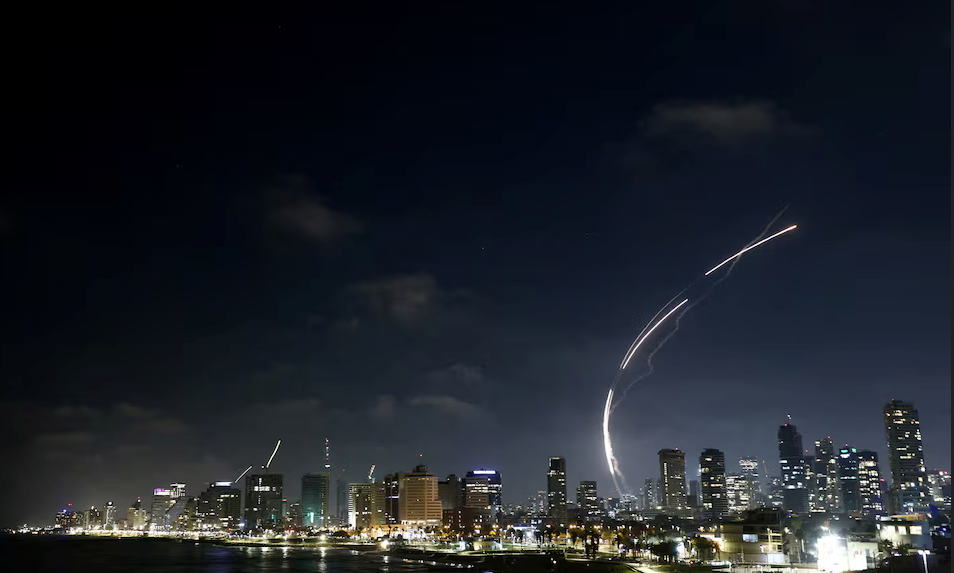Gambiaj.com – (JERUSALEM/TEHRAN) – Tensions between Israel and Iran erupted into open warfare overnight, as the Israeli military launched what it called “preventive strikes” against Iranian military and nuclear targets. The attacks, conducted between Thursday night and Friday morning, June 13, resulted in heavy casualties and infrastructure damage, including reported hits on key Iranian nuclear sites.
In response, Iran launched a massive counteroffensive, firing what officials described as “hundreds” of ballistic missiles at Israeli territory. Explosions were reported in Jerusalem and Tel Aviv, where buildings were hit and several people were injured.
According to Israeli emergency services, seven people were treated for injuries in the central Dan region, including those trapped in a damaged skyscraper.
The Israeli government claimed responsibility for “dozens of precision strikes” targeting nuclear facilities and high-ranking military officials. Among those killed, according to Israeli authorities, were the head of Iran’s Revolutionary Guards and the chief of staff of the Iranian military. Prime Minister Benjamin Netanyahu declared the operation a success and vowed that “there is more to come.”
The Iranian government, through its Revolutionary Guards, confirmed that its missiles struck “dozens of military and strategic targets” in Israel. A statement by Supreme Leader Ayatollah Ali Khamenei warned that Iran “will not close its eyes” to Israeli aggression. Tehran has also claimed to have downed two Israeli military aircraft over its territory.
As the conflict escalated, both countries suffered significant human and infrastructural losses. Iranian state media reported that at least 18 people were killed and 35 injured in northwest Iran alone. Overall, Iranian sources say at least 95 people were wounded across the country. Israel has not released a national casualty count but has confirmed missile impacts and ongoing emergency operations.
The International Atomic Energy Agency (IAEA) was notified by Iran that its nuclear enrichment sites in Fordo and Isfahan had been struck. While the head of the UN nuclear watchdog, Rafael Grossi, confirmed the attacks, Iranian officials downplayed the extent of the damage, calling it “not significant.”
Despite the violence, diplomatic voices urged restraint. UK Prime Minister Keir Starmer and U.S. President Donald Trump, emphasized the importance of “diplomacy and dialogue” in a joint call Friday evening. Washington, meanwhile, distanced itself from Israel’s initial offensive but warned Iran against targeting American interests in the region.
Israel’s Defense Minister, Israel Katz, declared a nationwide state of emergency and announced the closure of Israeli airspace. He condemned Iran for “crossing red lines” by targeting civilian centers and reiterated Israel’s intent to make the Iranian leadership “pay a high price.” Later Friday evening, the alert level was lowered slightly, with Israeli citizens permitted to leave shelters but advised to stay nearby.
Iran has kept its airspace closed through Saturday and continues to monitor for further Israeli actions. Meanwhile, Prime Minister Netanyahu framed the offensive as one of the largest in the country’s history, urging Iranians to “rise against the evil and oppressive regime” in Tehran.
With both sides exchanging threats and missiles, the region remains on edge. The potential for further escalation looms large, as diplomatic efforts race to contain what could spiral into a broader Middle East conflict.
Reporting by Gambiaj.com with wires from Reuters, AFP, and IRNA










